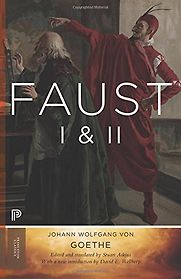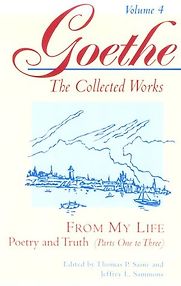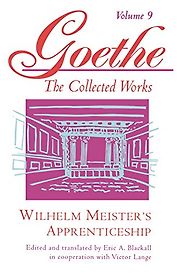Recommendations from our site
“So Dr. Faustus is a scholar. He’s not an evil guy; he’s someone who wants to pursue knowledge. That’s another element that’s important in Satanism: seeking scientific knowledge, questioning and trying to find out the facts for yourself rather than believing in superstition. Dr. Faustus is very much that type of scholarly, curious character, who because he wants knowledge signs away his soul, in blood, to Mephistopheles. Mephistopheles then takes him around on these great adventures throughout the world. He has all these incredible experiences. What’s interesting is that in earlier works about Faust, the Devil ends up dragging Faust to hell at the end. Faust is doomed. But, in Goethe’s version, because it’s later, Faustus actually still ends up in heaven. It’s an interesting take. A person can sign their soul away to the Devil and have all these great adventures and seek knowledge but still end up in heaven. It goes with what we were saying earlier, about how Satan came to be seen as more of a sympathetic character. If you represent someone who rebels and seeks knowledge and questions what’s imposed upon them, it can lead to good things.” Read more...
La Carmina, Journalist
“Faust is unquestionably Goethe’s most masterful and encompassing poetic achievement. It is a grand synthesis and in its grandeur it exceeds the limits of genre. Even to call it a drama doesn’t capture the achievement; it has epic and lyric qualities as well. The time covered in Faust extends from the beginning of the world all the way to Byron’s death in 1824 following the siege of Missolonghi. The work has a theological frame, a cultural-historical frame, and an artistic frame. It draws on the imaginary forms of bourgeois tragedy, Shakespearean drama, Renaissance lyric, the folk song, Calderon’s theatre, and Dante’s poetic vision. It combines the classical and the romantic, the high and the low, the mystical and the burlesque. Remarkably, all this holds together. If one were to search for a literary work that could genuinely be called a Gesamtkunstwerk–a total artwork–then Faust in its two parts would be the leading candidate for that title.” Read more...
David E. Wellbery, Literary Scholar











